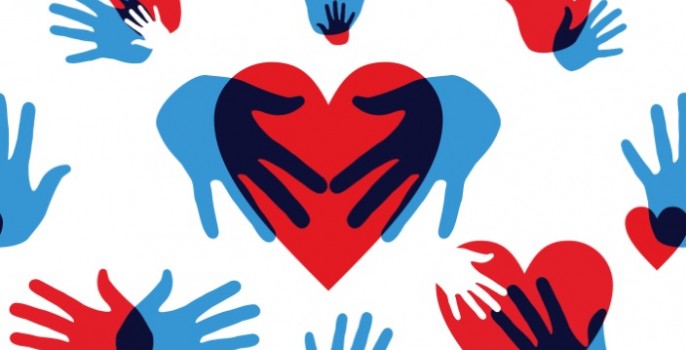In what organisers suggest is a ‘first of its kind’ move, an informal coalition of over 700 trans* and cis feminist activists, academics, writers and artists – from at least 30 countries – have co-signed a collective statement highlighting the prevalence of Transphobia within certain feminist movements spaces, and affirming ‘that feminism/womanism can and should be a home for trans* people as well as cis.’
Update: When the statement (and this article) was first published on September 16, it counted just under 100 co-signatories. In less than 24 hours that number jumped to 161, as individuals and organisations from all over the world rapidly joined the call. In just under a week (September 23), that number is now 664 signatories as well as 46 organisations.
A new blog Feminists Fighting Transphobia has also been co-produced and launched along with the statement, in the wake of what organisers describe as ‘a distressing increase in organized transphobic activities by certain groups of feminists this past summer (2013)’. Amongst other examples, they cite the publication of the controversial (August 12) statement Forbidden Discourse: The Silencing of Feminist Critique of “Gender” signed by a number of prominent feminist voices, including Ti-Grace Atkinson, Marge Piercy and Christine Delphy.
Organisers of the blog advise that they hope it – and the statement – will help provide ‘places where trans* people can come and find welcome and support from feminists… We particularly welcome comments regarding ways in which feminists and womanists, both cis and trans*, can organize to demonstrate solidarity with and support and acceptance of trans people.’
Responses, including wishes to sign-on to the statement, can be sent via email to:feministsfightingtransphobia1@gmail.com.
The statement now follows in full:
A Statement of Trans-Inclusive Feminism and Womanism
We, the undersigned trans* and cis scholars, writers, artists, and educators, want to publicly and openly affirm our commitment to a trans*-inclusive feminism and womanism.
There has been a noticeable increase in transphobic feminist activity this summer: the forthcoming book by Sheila Jeffreys from Routledge; the hostile and threatening anonymous letter sent to Dallas Denny after she and Dr. Jamison Green wrote to Routledge regarding their concerns about that book; and the recent widely circulated statement entitled “Forbidden Discourse: The Silencing of Feminist Critique of ‘Gender,’” signed by a number of prominent, and we regret to say, misguided, feminists have been particularly noticeable. And all this is taking place in the climate of virulent mainstream transphobia that has emerged following the coverage of Chelsea Manning’s trial and subsequent statement regarding her gender identity, and the recent murders of young trans women of color, including Islan Nettles and Domonique Newburn, the latest targets in a long history of violence against trans women of color. Given these events, it is important that we speak out in support of feminism and womanism that support trans* people.
We are committed to recognizing and respecting the complex construction of sexual/gender identity; to recognizing trans* women as women and including them in all women’s spaces; to recognizing trans* men as men and rejecting accounts of manhood that exclude them; to recognizing the existence of genderqueer, non-binary identifying people and accepting their humanity; to rigorous, thoughtful, nuanced research and analysis of gender, sex, and sexuality that accept trans* people as authorities on their own experiences and understands that the legitimacy of their lives is not up for debate; and to fighting the twin ideologies of transphobia and patriarchy in all their guises.
Transphobic feminism ignores the identification of many trans* and genderqueer people as feminists or womanists and many cis feminists/womanists with their trans* sisters, brothers, friends, and lovers; it is feminism that has too often rejected them, and not the reverse. It ignores the historical pressures placed by the medical profession on trans* people to conform to rigid gender stereotypes in order to be “gifted” the medical aid to which they as human beings are entitled. By positing “woman” as a coherent, stable identity whose boundaries they are authorized to police, transphobic feminists reject the insights of intersectional analysis, subordinating all other identities to womanhood and all other oppressions to patriarchy. They are refusing to acknowledge their own power and privilege.
We recognize that transphobic feminists have used violence and threats of violence against trans* people and their partners and we condemn such behavior. We recognize that transphobic rhetoric has deeply harmful effects on trans* people’s real lives; witness CeCe MacDonald’s imprisonment in a facility for men. We further recognize the particular harm transphobia causes to trans* people of color when it combines with racism, and the violence it encourages.
When feminists exclude trans* women from women’s shelters, trans* women are left vulnerable to the worst kinds of violent, abusive misogyny, whether in men’s shelters, on the streets, or in abusive homes. When feminists demand that trans* women be excluded from women’s bathrooms and that genderqueer people choose a binary-marked bathroom, they make participation in the public sphere near-impossible, collaborate with a rigidity of gender identities that feminism has historically fought against, and erect yet another barrier to employment. When feminists teach transphobia, they drive trans* students away from education and the opportunities it provides.
We also reject the notion that trans* activists’ critiques of transphobic bigotry “silence” anybody. Criticism is not the same as silencing. We recognize that the recent emphasis on the so-called violent rhetoric and threats that transphobic feminists claim are coming from trans* women online ignores the 40+ – year history of violent and eliminationist rhetoric directed by prominent feminists against trans* women, trans* men, and genderqueer people. It ignores the deliberate strategy of certain well-known anti-trans* feminists of engaging in gleeful and persistent harassment, baiting, and provocation of trans* people, particularly trans* women, in the hope of inciting angry responses, which are then utilized to paint a false portrayal of trans* women as oppressors and cis feminist women as victims. It ignores the public outing of trans* women that certain transphobic feminists have engaged in regardless of the damage it does to women’s lives and the danger in which it puts them. And it relies upon the pernicious rhetoric of collective guilt, using any example of such violent rhetoric, no matter the source — and, just as much, the justified anger of any one trans* woman — to condemn all trans* women, and to justify their continued exclusion and the continued denial of their civil rights.
Whether we are cis, trans*, binary-identified, or genderqueer, we will not let feminist or womanist discourse regress or stagnate; we will push forward in our understandings of gender, sex, and sexuality across disciplines. While we respect the great achievements and hard battles fought by activists in the 1960s and 1970s, we know that those activists are not infallible and that progress cannot stop with them if we hope to remain intellectually honest, moral, and politically effective. Most importantly, we recognize that theories are not more important than real people’s real lives; we reject any theory of gender, sex, or sexuality that calls on us to sacrifice the needs of any subjugated or marginalized group. People are more important than theory.
We are committed to making our classrooms, our writing, and our research inclusive of trans* people’s lives.
Signed by:
Individuals
Hailey K. Alves (blogger and transfeminist activist, Brazil)
Luma Andrade (Federal University of Ceará, Brazil)
Leiliane Assunção (Federal University of the Rio Grande do Norte, Brazil)
Talia Bettcher (California State University, Los Angeles)
Lauren Beukes (novelist)
Lindsay Beyerstein (journalist)
Jamie “Skye” Bianco (New York University)
Hanne Blank (writer and historian)
Kate Bornstein (writer and activist)
danah boyd (Microsoft research and New York University)
Helen Boyd (author and activist)
Sarah Brown (LGBT+ Liberal Democrats)
Christine Burns (equalities consultant, blogger and campaigner)
Liliane Anderson Reis Caldeira (Federal University of Minas Gerais, Brazil)
Gloria Careaga (UNAM/National Autonomous University of Mexico)
Avedon Carol (activist and writer; Feminists Against Censorship)
Wendy Chapkis (University of Southern Maine) – “I don’t love the punch line ‘people are more important than theory.’ More to the point, it seems to me, is that feminist theories that fail to recognize the lived experiences and revolutionary potential of gender diversity are willfully inadequate.”
Jan Clausen (writer, MFAW faculty, Goddard College)
Darrah Cloud (playwright and screenwriter; Goddard College)
Alyson Cole (Queens College – CUNY)
Arrianna Marie Coleman (writer and activist)
Suzan Cooke (writer and photographer)
Sonia Onufer Correa (feminist research associate at ABIA, co-chair of Sexuality Policy Watch)
Molly Crabapple (artist and writer)
Elizabeth Dearnley (University College London)
Jaqueline Gomes de Jesus (University of Brasilia, Brazil)
Sady Doyle (writer and blogger)
L. Timmel Duchamp (publisher, Aqueduct Press)
Flavia Dzodan (writer and media maker)
Reni Eddo-Lodge (writer and activist)
Finn Enke (University of Wisconsin, Madison)
Hugh English (Queens College – CUNY)
Jane Fae (writer and activist)
Roderick Ferguson (University of Minnesota)
Jill Filipovic (writer and blogger)
Rose Fox (editor and activist)
Jaclyn Friedman (author, activist, and executive director of Women, Action, & the Media)
Sasha Garwood (University College, London)
Jen Jack Gieseking (Bowdoin College)
Dominique Grisard (CUNY Graduate Center/Columbia University/University of Basel)
Deborah Gussman (Richard Stockton College of New Jersey)
Dr Sally Hines (University of Leeds)
Claire House (International Day Against Homophobia and Transphobia, Brazil)
Astrid Idlewild (editor, urban historian)
Sarah Hoem Iversen (Bergen University College, Norway)
Sarah Jaffe (columnist)
Roz Kaveney (author and critic)
Zahira Kelly (artist and writer)
Mikki Kendall (writer and occasional feminist)
Natacha Kennedy (Goldsmiths College, University of London)
Alison Kilkenny (journalist and activist)
Matthew Knip (Hunter College – CUNY)
Letícia Lanz (writer and psychoanalyst, Brazil)
April Lidinsky (Indiana University South Bend)
Erika Lin (George Mason University)
Marilee Lindemann (University of Maryland)
Heather Love (University of Pennsylvania)
Jessica W. Luther (writer and activist)
Jen Manion (Connecticut College)
Ruth McClelland-Nugent (Georgia Regents University Augusta)
Melissa McEwan (Editor-in-Chief, Shakesville)
Farah Mendlesohn (Anglia Ruskin University)
Mireille Miller-Young (University of California, Santa Barbara)
Lyndsey Moon (University of Roehampton and University of Warwick)
Surya Monro (University of Huddersfield)
Kenne Mwikya (writer and activist, Nairobi)
Zenita Nicholson (Secretary on the Board of Trustees, Society Against Sexual Orientation Discrimination, Guyana)
Anne Ogborn (frightening sex change)
Sally Outen (performer and activist)
Ruth Pearce (University of Warwick)
Laurie Penny (journalist and activist)
Rosalind Petchesky (Hunter College and the Graduate Center, CUNY, and Sexuality Policy Watch)
Rachel Pollack (writer, Goddard College)
Claire Bond Potter (The New School for Public Engagement)
Nina Power (University of Roehampton)
Marina Riedel (Federal University of Rio Grande do Sul, Brazil)
Mark Rifkin (University of North Carolina – Greensboro)
Monica Roberts (Transgriot)
Dr. Judy Rohrer (Western Kentucky University)
Diana Salles (independent scholar)
Veronica Schanoes (Queens College – CUNY)
Sarah Schulman, in principle (College of Staten Island – CUNY)
Donald M. Scott (Queens College – CUNY)
Lynne Segal (Birkbeck, University of London)
Julia Serano (author and activist)
Carrie D. Shanafelt (Grinnell College)
Rebekah Sheldon (Indiana University-Purdue University-Indianapolis)
Barbara Simerka (Queens College – CUNY)
Gwendolyn Ann Smith (columnist and Transgender Day of Remembrance founder)
Kari Sperring (K L Maund) (writer and historian)
Zoe Stavri (writer and activist)
Tristan Taormino (Sex Out Loud Radio, New York, NY)
Jemma Tosh (University of Chester)
Viviane V. (Federal University of Bahia, Brazil)
Catherynne M. Valente (author)
Jessica Valenti (author and columnist)
Genevieve Valentine (writer)
Barbra Wangare (S.H.E and Transitioning Africa, Kenya)
Thijs Witty (University of Amsterdam, Netherlands)
Groups:
Bishkek Feminist Collective SQ (Kyrgyzstan, Central Asia)
House of Najafgarh (Najafgarh, India)
House of Kola Bhagan (Kolkatta, India)
Transgender Nation San Francisco


